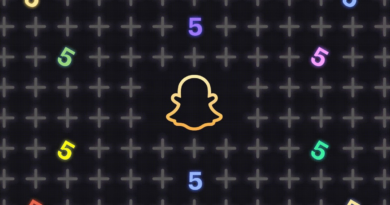Judge silences White House social media talks in lawsuit that departs from reality
Over the July 4 holiday, it emerged that a judge in Louisiana had issued an injunction preventing the White House from speaking to social media companies in certain ways. The lawsuit this decision is part of, it must be said, is quite mad. Robert F. Kennedy Jr swallowed the Twitter Files whole and is now suing Biden for things that happened in 2020 — under Trump.
The Washington Post first reported the news that the White House, per the injunction, must refrain from “urging, encouraging, pressuring, or inducing in any manner the removal, deletion, suppression, or reduction of content containing protected free speech.”
Such injunctions are intended to stop a behavior the plaintiffs allege is illegal, and if a judge believes a suit is likely to succeed, they can preemptively block (or “enjoin”) it to prevent further harm. And in this case there is plenty of purported evidence that the federal government is performing de facto censorship by coordinating with “three social-media companies—Facebook, Google, and Twitter.”
But even a cursory reading of the complaint lays bare the fact that this is a ridiculously inaccurate representation of the events in question. This case is notable not for its own merits but for the potential import of the judge’s decision.
Certainly the role and scope of of the federal government in controlling disinformation, misinformation, and anything else online is something that should be examined and questioned. But this lawsuit, which simply trots out the same old complaints of Hunter’s laptop, removal of anti-vaccine content, and the Wuhan lab origin theory of COVID-19.
It’s a laundry list of right-wing conspiracies and canards that have been discredited or abandoned for want of interest over the last few years, but which certain operatives can’t seem to let go. Many of them are lifted directly from the terminally underwhelming Twitter Files, which we examined in detail here. If there was ever any blood to wring from this stone, it’s long gone.
The topics of this feeble retread are so tiresome and familiar and the basic characterizations of companies, practices, and terms so egregiously wrong that a comprehensive refutation would be both boring and superfluous. No one should need to have it explained that the Census Bureau is not performing censorship when it asks people to report false census claims so it can correct them.
For the only thing you really need to see in order to understand how absolutely ridiculous this case is, see page 23.
“Sustained, successful efforts by federal officers to induce social-media platforms to censor speech appear to have begun in 2020,” the allegations begin. A variety of agencies allegedly worked closely, clandestinely, and in coordination to censor protected speech.
As many pointed out when this type of accusation appeared during the non-revelations of the Twitter Files, in the year 2020 Donald Trump was president of these United States. Every executive agency was under his authority and had been for years.
But the lawsuit says:
Because the two most prominent censorship “achievements” of that year—the suppression of the lab-leak theory of COVID’s origins and of reporting about Hunter Biden’s laptop—appear to conflict with the interests of and positions taken by then-President Donald Trump, it is doubtful that the White House was organizing or spearheading these federal censorship efforts.
Yes, the reason the administration responsible for the practices alleged by the lawsuit is not named as defendant is because, with no evidence whatsoever backing them up, the plaintiffs assert that the White House was not actually involved. But Biden’s was — starting in 2021 and apparently retroactively into 2020. This is a departure from reality, plain and simple.
The lawsuit cites statements by then-candidates Biden and Harris that social media needed to work harder to catch things like election-related disinfo, and that if they couldn’t do so then the government may need to rethink Section 230.
238. Backed up by these threats, the voluminous efforts by federal agents and federally partnered entities to induce viewpoint-based social-media censorship in the run-up to the presidential election of 2020 would reasonably have been perceived by social-media companies as demands that had to be substantially complied with on pain of potentially catastrophic consequences such as the loss of Section 230 immunity or an antitrust break-up.
239. The government’s censorship campaign proved highly effective.
240. For example, the censorship achieved through these efforts included suppression of President Trump’s own speech as well as many expressions of concern by Republicans about election security as a result of the massive increase in voting by mail during the 2020 general election.
In case you didn’t catch it, in 239 the lawsuit refers to Biden and Harris’s efforts as “the government,” during an ongoing presidential campaign when Trump — supposedly the target of this campaign — was actually, legally, and visibly the government. In fact his administration was notorious for its frequent disputes with social media and the very public and frequent threats Trump made against the companies. These official actions, including Executive Orders and various public statements, are conspicuously not mentioned in the lawsuit.
It seems clear this lawsuit is a purely political document: RFK Jr, the long-shot aspirant to the GOP nomination in 2024, is attempting to coddle conspiracies, appear tough on tech, and scrupulously avoid criticizing or even mentioning Trump in this bizarre, outdated, and deeply incorrect list of allegations.
As for the injunction: That the judge granted it is bad news, as it implies that he has either read the complaint and found it compelling, or has failed to note its numerous and serious deficiencies. However, the defense (a long list of officials and entities) has yet to file its response, and may challenge the injunction with a few well-placed points. The case is fresh and evolving, and if the injunction holds it is unclear what communications legally constitute what is enjoined. You can follow the latest filings here.




